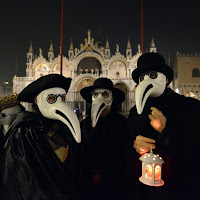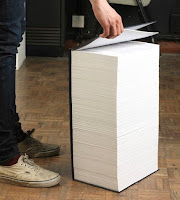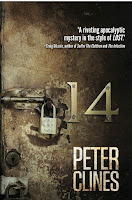I mean… is a bar even normal anymore? It was when I started this, but now it feels a little weird. What’s going to be “normal” when my agent and editor see this in a month or two? Do these dozen or so bar patrons—does the whole vibe of the bar—come across differently now? Should they be wearing masks? Should the bartender have gloves? And what does it mean if I write them not wearing masks of gloves. How will people see the book? Hell, how will people see me? I mean, for some idiot reason wearing/not wearing a mask during a pandemic has become a political statement.
If you’re having these kinda thoughts well… join the club. It makes sense, after all. It shows you have a good level of empathy, that you’re thinking about these things and how they’ll be seen by other people.
But thinking about them doesn’t answer the big question. What should we do? How should we—or should we—be altering things in our work to match the world better?
I think what we’re all experiencing right now is a kind of common problem, it’s just rare for all of us to be going through it at the same time, and on this scale. We’re trying to write for the future. We’re trying to guess what readers and agents and editors are going to want to see in nine or ten months.
Hell, even more hardcore genre books can have this problem. How many sci-fi books and movies are set in a future that we’ve already reached and passed? 2001: A Space Odyssey and its sequel 2010? Back to the Future? Thundarr the Barbarian? A ton of Star Trek? All of these stories involved “future” events and well… we know those futures didn’t happen.
Y’see Timmy, we can’t predict the future. Even the relatively near future. And our readers and editors know this. Things will always happen that might make some part of my book obsolete or impossible. If it doesn’t happen in the process of writing it, it’ll definitely happen at some point. It’s inevitable.
My point is… don’t worry about it right now. Take a breath. The world’s in a very weird place and nobody has any idea what it’s going to be like a year from now. Absolutely no one. So for this book, just do what feels right. And a year from now we can all worry about what things are like a year from now.
I will toss out two small addendums to this.
First, the easy one. If this really gnaws at you, maybe you could incorporate some “current” elements at a lesser level. I mean, here in southern California (probably in most cities)it wasn’t exactly rare to see people wearing masks, especially during flu season or some outbreak. Heck, if you’ve been at an airport any time in the past few years, I’m sure you’ve seen people wearing them there. So it’s not like it would be unnatural to mention masks on a few people, or someone keeping that one alligator-length away from other folks.
Addendum the second. I’ve mentioned once or thrice there are some writers who seriously excel at pumping out really fast, very topical books. It’s a really specific type of market and you need to be a very specific type of writer to do well in it.
My point is, unless I’ve already finished it, I should probably hold off on something that ties directly to current events. There’s a really good chance a lot of writers already beat me to it (in the sense that their novel’s already done). Which means there’s a really good chance agents and editors are already swamped with these brilliant, high-concept ideas that I just thought up off the top of my head and all of you could immediately picture. Even if I go the self pub-route, odds are these other writers have already sewn up that market. Or bled it dry. Maybe both. Whichever of those works best for you.
But my big point still stands. For now, try not to worry too much about this. Make sure your book works overall, that all the big beats work before fretting over small details. Even if some aspect of the world means my book is now 100% impossible, it can still be looked at as a story of the world that was, and it’ll still need to be the best book I can make it.
Anyway… that’s my semi-inspirational, reassuring ramble for this week. Hopefully it helped a few of you. It actually calmed be a bit just writing it out.
Next time… I don’t know. After three months working on the A2Q, I feel a little lost. Is there a particular topic anyone would like me to address and blather on about? Something from the A2Q I could clarify? Just a random question that’s been bugging you? Let me know down below.
And if nobody has anything… well, I’m sure I’ll come up with something exciting.
Until then, go write.













